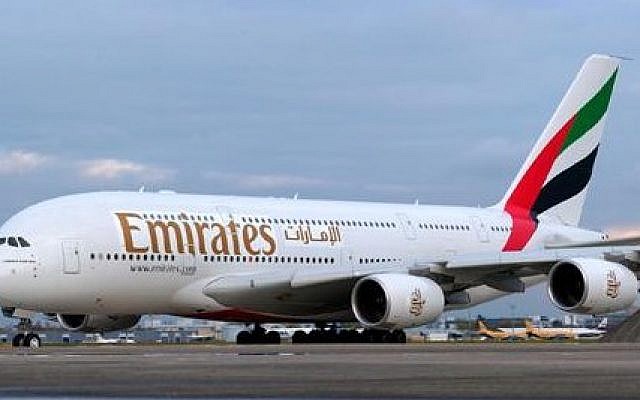A major, yet sudden, crisis erupted between Tunisia and Abu Dhabi, after UAE national carrier, Emirates, decided on December 22nd to prevent Tunisian women from boarding its planes travelling to Dubai.
The Tunisian government then summoned the UAE ambassador in Tunis for clarification.
The UAE diplomat described the decision, the Tunisian Ministry of Foreign Affairs said in a statement, as “temporary” and connected with some security arrangements.
He added that the ban had already been lifted, consequently allowing Tunisian women to board Emirates’ planes travelling to Dubai yet again, the ministry added in the statement.
The UAE carrier said on Friday that Tunisians travelling Dubai were allowed to board its planes, provided that they had valid entry visas.
Those arriving in Emirates for transit, the carrier said, did not need entry visas.
The problem was close to ending the day before yesterday when UAE Minister of State for Foreign Affairs, Anwar Gargash, wrote on Twitter that his country had deep respect for Tunisian women.
“We had contacted our brothers in Tunisia to clarify the incident, which was occasionally connected with a security tip that necessitated specific measures, to prevent any misunderstanding,” Gargash wrote.
Later in the day, however, the Tunisian Ministry of Transport issued a ban against the landing of Emirates’ planes in Tunisian airports. The ministry said the ban would be enforced until the UAE carrier found solutions that went hand in hand with international laws and treaties.
Emirates declared, meanwhile, the suspension of its flights from Dubai to Tunis. The company, which is headquartered at Dubai International Airport, said in a statement that the flight suspension would start as of Monday until further notice.
Nonetheless, Tunisian Presidential Spokeswoman, Saida Qrash, said measures taken by the UAE fell into the Gulf state’s realm of sovereignty and that they were not an expression of a crisis with Tunisia.
“UAE authorities have information about possible terrorist operations to be carried out by Tunisian women,” Qrash said.
She said the same information was seconded by American authorities which described it as “serious” in the light of the escape of militants from Syria.
UAE journalist, Hassan al-Marzooqi, who specializes in militant and religious groups, said Tunisian authorities issued the ban against Emirates’ flights after being intensely pressured by Ennahda Movement, the local Muslim Brotherhood organization in the North African state.
He added that the Tunisian government was also pressured to issue the ban by the party of former Tunisian president, Moncef Marzouki, and Qatari media.
The three of them, al-Marzooqi said of Ennahda, Marzouki’s party and the Qatari media, tried to portray the Emirates’ ban as discrimination against Tunisian women.
“Everybody knows well that the people and leadership of the UAE have deep respect for Tunisia,” al-Marzooqi said. “The Tunisians know this very well, but political and electoral conflicts seem to have played well into the crisis with the aim of winning women’s votes in future elections.”
He said security was a prerequisite for growth in any country and that the Tunisian ban against Emirates’ planes would negatively affect confidence in the Tunisian economy.
Al-Marzooqi described motivations behind the ban as “political” in nature, noting that Emirates which flies to 156 destinations around the world would not be strongly affected by dropping one of these destinations out of its list.
The UAE journalist said Emirates had to suspend its flights to Doha when there were threats to the UAE’s security and stability, even as the number of flights to Doha was seven times larger than that to Tunis.
“Emirates cannot risk the safety of its passengers under any type of political exploitation,” he said.
He referred to “massive” public support to decisions taken by the UAE leadership to protect the security of the Gulf state.
“This security is a redline,” al-Marzooqi said. “We will not allow anybody to cross it.”
The Tunisian leadership, al-Marzooqi said, would rather have investigated the reasons behind the decision of the UAE carrier and worked seriously to address the terrorist threats that negatively affected the interests of the brotherly Tunisian people.
He accused the Muslim Brotherhood of spreading extremism among a large number of Tunisian youth, expecting other countries to follow in the footsteps of the UAE in case Tunisian authorities failed to address such a problem.








































admin in: How the Muslim Brotherhood betrayed Saudi Arabia?
Great article with insight ...
https://www.viagrapascherfr.com/achat-sildenafil-pfizer-tarif/ in: Cross-region cooperation between anti-terrorism agencies needed
Hello there, just became aware of your blog through Google, and found ...